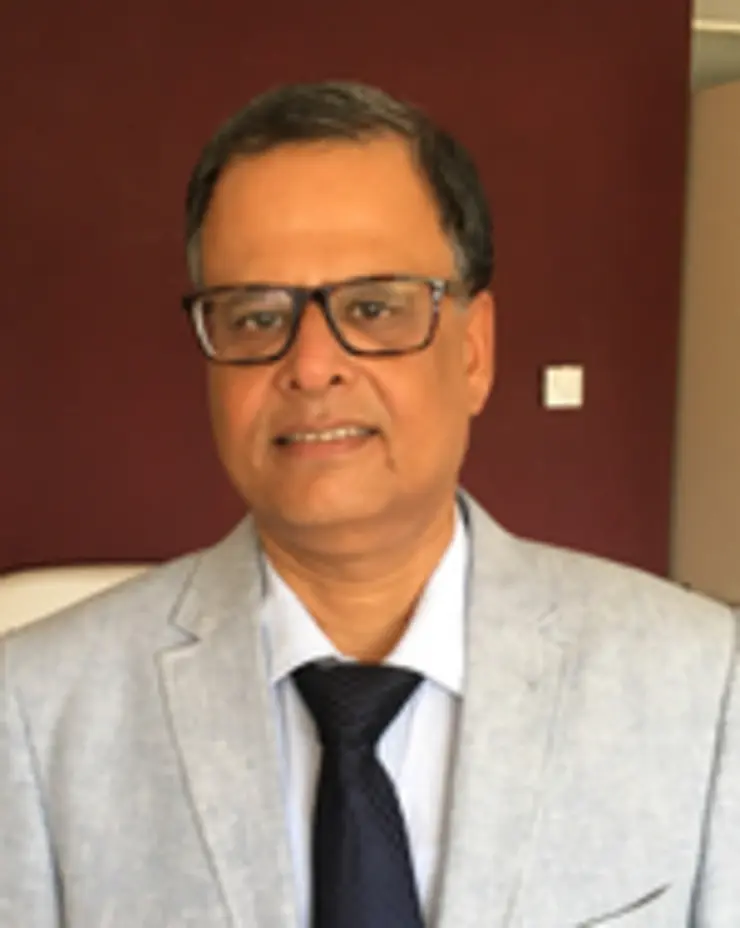Prof. Dr. Pralay Kanungo

Ehemaliger Fellow am Max-Weber-Kolleg von Oktober 2018 bis September 2019
- Vita
- Forschungsprojekt
Religion and Communities in a River-City: Co-living and Contestations in Varanasi
River, religion and city (Ganga, Hinduism and Varanasi) lay out an exciting canvas for research in the context of evolution of their close connection from ancient to present. On this trope, the key research question for this project is how river, religion and urbanity influence and shape everyday life, form and transform communities, and how and why communities converge and collide in a multi-religious and multicultural urban milieu. In this backdrop, this research will be distinct from the existing body of works on Varanasi in many ways. First, introducing the concept of sacred river-city, it will explain how Ganga and Hinduism have formed and transformed the urbanity of Varanasi historically, spatially, economically and culturally. Secondly, contesting many myths, it will deconstruct ‘Hindu Varanasi’ to unravel its religious, social, cultural, economic layers and hierarchies, contradictions and conciliations. As ‘Hindu Varanasi’ is plural and diverse, the study will map out the characteristics and agencies of Brahminical/dominant Hinduism as well as non-Brahminical/subaltern Hinduism. Focusing on a few stigmatized and marginalized Hindu communities (Doms and Mallahs) and sects (Aghoris), it will critically examine whether and how these communities simultaneously resist and emulate Brahminical Hinduism by invoking their own myths and history, Gods and Gurus, and creating their own religious institutions and networks. Besides, it will also reflect on how subaltern actors and agencies strategically invoke constitutional rights as well as community rights drawing from their own religious and cultural resources while resisting the caste-class-state domination in their everyday struggle for livelihood, recognition and rights. Thirdly, tracking Hindu-Muslim relations in syncretic Varanasi, this research will highlight how the changes in political economy and globalization have adversely affected the complementarity between Muslim weavers and Hindu traders, thereby creating space for political Hinduism and Political Islam to play out the politics of polarization and communalization.
Methodologically, being a sacred river-city, claiming ‘Hindu antiquity’, Varanasi is a challenging site for research. Monuments and heritage sites, spatial configuration with temples, ghats, pilgrimage routes, mosques and darghas make a complex statement on its history, spatiality, religion, culture, economy and identity. This complexity can be grappled through an interdisciplinary approach, factoring in multiple methods and using multifarious sources. Besides archival research and interpretation of texts, discourses and oral history, extensive fieldwork will be conducted to grasp the materiality and immateriality of the river-scape, city-scape and religio-scape primarily focusing on rituals and practice. Hence, ethnography will be key to comprehend the connection between river, religion, everyday life and inter-community relations. The major sites for this purpose will be riverfront (Ghats) and neighbourhood (Mohllas): while the former will be ideal to capture everyday spectacle and performativity of a range of sacred rituals and profane events, the latter will unravel the interplay and impact of materiality and religion in everyday life and inter-community relations. Finally, studying of a long disputed site, where the Hindu Lat Bharava temple, an Idgah, and a Sufi shrine have been sharing space for long, this research will underline how discourses and practices of political Hinduism and political Islam construct ‘the other’ and make co-living in Varanasi contentious.
- Publikationen
- RSS’s Tryst with Politics: From Hedgewar to Sudarshan, New Delhi: Manohar, 2002.
- Cultural Entrenchment of Hindutva: Local Mediations and Forms of Convergence (Co-edited), Delhi: Routledge, 2011.
- Public Hinduisms (Co-edited), Delhi: Sage, 2012.
- The Politics of Ethnicity in India, Nepal and China (Co-edited), Delhi: Primus, 2014.

